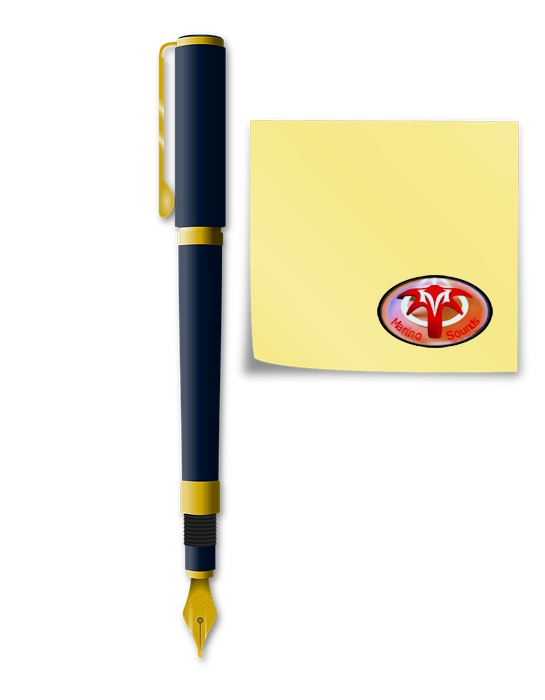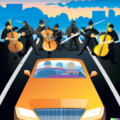 Wade Crawley said me “I propose to write an article about the influence of punk and indie music How exactly to Work With tough folks in the Indie music World - What is Indie Music World? I am willing to wager that the most challenging aspect of your life at this moment is interacting with and managing relationships with others. It's a bet I believe I would easily win, as almost everyone faces this issue. It's the bane of the human experience. A famous French philosopher… and culture on a young person (myself) coming of age in England in the late seventies and early eighties”.
Wade Crawley said me “I propose to write an article about the influence of punk and indie music How exactly to Work With tough folks in the Indie music World - What is Indie Music World? I am willing to wager that the most challenging aspect of your life at this moment is interacting with and managing relationships with others. It's a bet I believe I would easily win, as almost everyone faces this issue. It's the bane of the human experience. A famous French philosopher… and culture on a young person (myself) coming of age in England in the late seventies and early eighties”.
I accepted, and Wade wrote this article! I must add also these more lines from him: “I’m quite excited at the prospect of having it published on your weblog because I was very impressed by the quality. It’s a very good weblog and an entertaining read.” Thank you Wade! And I’m sure our readers will appreciate very much your writing.
Punk music in the late seventies
I was still at school when I first heard of the Sex Pistols. The now infamous Bill Grundy interview was only shown on a London regional news programme, so only people in and around London got to see it. For those of us living outside of London, it was the outraged front pages of the tabloids the following day that first made us aware of the Sex Pistols and punk rock.
“The Filth and the Fury” screamed one tabloid’s front page and most of the others had similar outraged headlines on their front pages. The foul language of some of the band members in that interview had outraged people so much, that in one case a man had put his foot through his television screen, reported one newspaper.
Looking at that interview now on YouTube, it all seems rather tame by today’s standards, but it perfectly illustrates just how uptight our society was back then. As a schoolboy going through the obligatory teenage rebellion phase, I found it all very exciting. Even now, I don’t think a music video has ever captured the air of menace and defiance like the Sex Pistols’ Pretty Vacant. Anything that upset parents, teachers and the establishment that much, had to be good, was my attitude at the time.
BBC Radio One was pretty much the only radio station catering for young people at the time as this was before the rise of commercial radio. They tried to ignore punk as though it wasn’t happening. The BBC’s flagship weekly music television show, Top Of The Pops, was a show whose remit was to include the acts that were selling well in the charts and as punk at that time was dominating the charts, they couldn’t ignore it any longer. The show’s DJ’s and presenters, middle aged men like Tony Blackburn and Mike Read who had made no secret of their dislike of punk music, much to our amusement, had to smile through clenched teeth and show enthusiasm for bands they hated.
When God Save The Queen by the Pistols hit number one in the charts, the BBC decided that there was no number one that week and refused to play it. In all of the official chart listings, when you got to number one there was just a blank space! At that time, any criticism of the royal family was treated pretty much as blasphemy!
I went to school in Whitehawk, a heavily working class area of Brighton, on England’s south coast, with a reputation for some of the worst social problems in the city. Many of the bands that were around back then such as Genesis, Led Zeppelin, Yes, Emerson, Lake and Palmer, etc, were all made up of middle class art students or music graduates with nothing for us to relate to at all. Now, all of a sudden, along came punk rock with bands made up of people of similar age and from similar backgrounds to us. They had songs that we could relate to and expressed how we felt at that time. They also proved that you didn’t have to be a music student who had studied an instrument for many years, to be in a band and write great songs.
In the few years leading up to that time, I had gone to the movies to see ‘Tommy’ by the Who and Led Zeppelin’s ‘Song Remains The Same’ because I liked both bands. However, the films were so self indulgent and pretentious that I came away thoroughly disillusioned. The arrogance of the band members in the live footage of Led Zeppelin in ‘Song Remains The Same’ and their condescending attitude towards their audience, coupled with the narcissistic ‘fantasy’ sequences, not only left me with a foul taste in my mouth but also ensured I never bought anything by them again. After all this, punk rock was like a breath of fresh air.
Britain in the late 70’s was a pretty grim place to be growing up in. Industrial unrest was rife, rubbish was piled high in the streets because there was a strike by the dustmen who had refused to collect it and the ultra right wing National Front were beginning to come to prominence. They were organizing marches all over the country involving large numbers of their union jack carrying skinhead supporters, through racially sensitive areas. Taking advantage of all this unrest, they were targeting working class areas and managing to get members elected to local councils. Many young people were being indoctrinated into their ideology but punk bands were openly coming out against this and using their influence to fight back against the racists.
Many punk bands when they played live had reggae bands supporting them and the Clash famously played at a Rock Against Racism concert at Victoria Park in London B52 - Wade Crawley is back with a great B52 concert review! If you remember, Wade wrote for us Punk music in the late seventies. Now read his new exclusive article for ManuelMarino.com! The B52’s, London Roundhouse It was on a hot and very sweaty summer night in London’s trendy Camden and a packed audience of all… to over 80,000 people. When they sang ‘White Riot,’ Jimmy Pursey of Sham 69, a band with a large skinhead following, joined them on stage and this was an extremely significant gesture. This really did make a difference to a young and still very impressionable audience. I had friends who were skinheads, some of whom were planning to join a National Front march that was about to take place in Brighton. That Clash gig, along with various interviews with band members in the music press, were some of the main reasons why they thought again and decided not to go. Another factor that helped was the fanzine culture that had sprung up directly because of punk and the ‘do it yourself’ mentality. ‘Sniffing Glue’ was one of the first and more well known. They were magazines written and printed by fans and included interviews with bands, reviews of gigs and political articles expressing the opinions of the authors, many in support of the Anti Nazi League. They started off just crudely photocopied on A4 paper but the ones that became popular ended up being quite professionally printed and presented. They only cost a little pocket change too so anybody could afford them.
Another positive repercussion of punk was the rise of the independent record labels. There would be no ‘indie’ music scene if it wasn’t for punk. In fact, the music scene now would be very different if punk hadn’t happened.
I really believe punk has made a difference to how I think in general and that music really does have the power to change the world.
Manuel Marino is a seasoned Senior Producer, Music Composer, and Artist with over a decade of experience. He specializes in branded entertainment across various mediums, including video games, films, and advertising campaigns. With 20+ years as a game music composer, Manuel has worked on numerous platforms, creating diverse orchestral soundtracks. HIRE ME


 Manuel is a passionate, driven, and techsavvy AV technician,
Manuel is a passionate, driven, and techsavvy AV technician, 










[…] Crawley is back with a great B52 concert review! If you remember, Wade wrote for us Punk music in the late seventies. Now read his new exclusive article for […]
What an interesting time the 70’s were!
absolutely! all the best music come from there